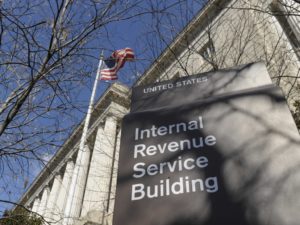IRS Failure-to-File Penalties
 Not filing your taxes is a good way to establish a personal relationship with the IRS.
Not filing your taxes is a good way to establish a personal relationship with the IRS.
The IRS says a lot, but this hits the high spots:
Failure-to- file penalties are generally harsher than failure-to-pay penalties.
The penalty for late filing is normally 5 percent of the unpaid taxes, beginning the day after the filing due date, and can increase to 25%. Failure-to-pay penalties are considerably less, often 0.5% of your unpaid taxes. Remember, on top of your failure-to-pay penalty, interest accrues, compounded daily, on your unpaid taxes.
If you timely request an extension to file your individual return and pay at least 90 percent of taxes owed with your request, you may not face a failure-to-pay penalty.
Are there any options?
Sure. You may not have to pay late-filing or late-payment penalties if you can show reasonable cause for not filing or paying on time. The IRS also offers an installment plan which comes with a one-time fee, but that fee can be reduced considerably with a direct debit payment plan. Options also exist for a temporary delay in collection efforts, and you can also make an offer in compromise, but your tax debt continues to accrue penalties and interest until paid in full.
Does the IRS ever not penalize a taxpayer for not filing?
You bet! Not only will the IRS not penalize a taxpayer, but they’ll probably make no effort to get on a first name basis with you. Why? Because they’ve got your money. If you want it, you have to ask for it. Kicker is, after three years, there’s a very good chance the money belongs to the IRS. If the taxpayer decides to become current on taxes after the three years, not only could the refund be considered ‘unrefundable,’ but any claim to those years’ tax credits are most likely no longer valid. Add another layer of intrigue: If you, in one or several of the following years, owe taxes, then penalties and interests would be building up, and suddenly the IRS might find you very attractive.
Bottom line?
If you haven’t filed your Federal tax return yet, file an extension, pay as much as you can on your tax due obligation (90% is ‘required’) by the due date (4-18-16 for 2015 tax year).


